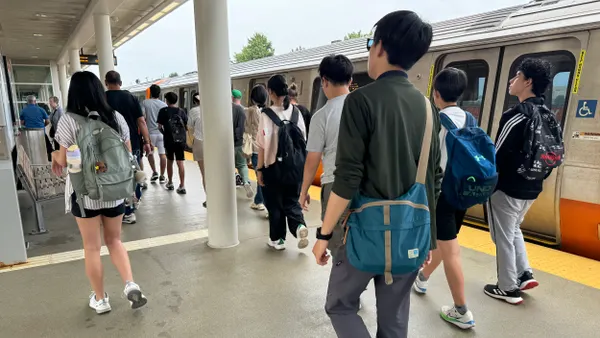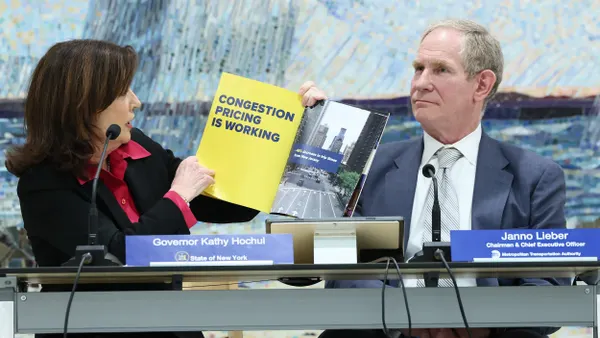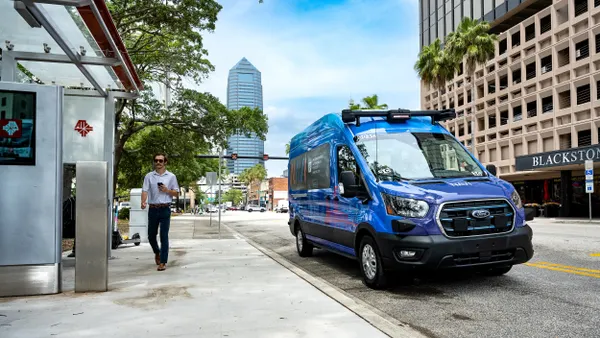Dive Brief:
- Siemens published its LA City Performance Tool Report on Tuesday, analyzing the steps the city must take to achieve its Sustainable City pLAn of reducing greenhouse gas emissions (GHGs) 60% by 2035 and 80% by 2050.
- The report found, in order to achieve these goals, the city must focus on transitioning to 100% renewable electricity and 45% passenger travel by transit and active transport (such as biking or walking) by 2050.
- Siemens notes these goals are achievable through the investment in and implementation of 11 transportation technologies: electric cars, reduced headway on Metro, new lines on Metro, e-highways, electric car-sharing, congestion charging, high-occupancy toll lanes, electric buses, new electric bus rapid transit lines, e-ticketing on public transportation and intelligent traffic light management.
Dive Insight:
Today, Los Angeles reports a use of 33% renewable energy and 14% transit and active transport, making the city's 2050 goals fairly aggressive. While the city was able to reduce its GHG emissions by 20% from 1990 to 2013, efforts for continued reductions are growing increasingly challenging as the city's population approaches 4 million people.
One of the most challenging aspects of these targets will be the reduction of citywide car usage from 86% to 54.5% by 2050. In February, Los Angeles topped the Inrix annual list of the world's most gridlocked cities for the sixth year, noting that the average driver spends 102 hours in traffic during peak hours in the city. Los Angeles' transit and active transport target calls for a significant increase in metro rail and bus usage to alleviate car dependency, but the city will need to work diligently to promote and incentivize these services in order to draw in more passengers.
For Los Angeles to reach 100% renewables, the Los Angeles Department of Water and Power (LADWP) will need to reassess how it operates. Spencer Fields, Synapse Energy Economics associate, told sister publication Utility Dive that reaching 100% renewables "does not require any more renewable generating capacity [in Los Angeles] ... They just need to adjust to a new system operating paradigm."
While the success of these targets in Los Angeles remains to be seen, multinational conglomerate Siemens is staying active in the smart cities space. The company has ran similar sustainability target tests on cities like Minneapolis and Charlotte, NC, and has also worked on various data-driven transportation initiatives and blockchain projects.










